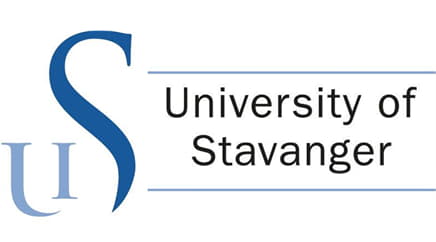Last Date: 15th February 2024.
Job description
The University of Stavanger invites applicants for a PhD Fellowship in educational science at the Faculty of Arts and Education, Norwegian Centre for Reading Education and Research. The position is vacant from April 1st, 2024.
This is a trainee position that will give promising researchers an opportunity for academic development through a PhD education leading to a doctoral degree.
The hired candidate will be admitted to the PhD program in Educational Sciences and Humanities. The education includes relevant courses amounting to about six months of study, a dissertation based on independent research, participation in national and international research environments, relevant academic communication, a trial lecture and public defence. Read more about the PhD education at UiS on our website.
The appointment is for three years with research duties exclusively.
Research topic
The person hired will be associated with the RCN-funded project Human Reading Assessment.
Human Reading Assessment is an interdisciplinary project that will pilot and investigate the consequences of using artificial intelligence in adaptive reading tests and learning tools. For the PhD student, both educational, literary, psychometric and philosophical angles may be relevant. Issues can, for example, be related to:
- characteristics of texts that are engaging for students and suitable for use in tests
- teachers’ needs for and use of information from test results
- development of methods for learning analysis within psychometrics and machine learning (e.g., IRT-based adaptive algorithms, recommendation systems and language technology)
- what consequences AI-based learning technology has for children’s experience of and room for action in the world.
Project proposal
As an applicant, you must prepare a preliminary project proposal for a doctoral project within the subject area, which explains the problem, relevance, theoretical and methodological approach. Your preliminary project proposal will be included in the application assessment.
During the first three months of the employment period, the project proposal and progress plan will be further developed in cooperation with your supervisors and completed for the final plan for the PhD-project.
The proposal must be a maximum of one page.
Qualification requirements
We are looking for applicants with a strong academic background who have completed a five-year master degree (3+2) within educational science, Nordic languages, didactics of Norwegian language, literature, psychometrics, philosophy or equivalent education, preferably acquired recently; or who possess corresponding qualifications that could provide a basis for successfully completing a doctorate.
To be eligible for admission to the doctoral programmes at the University of Stavanger both the grade for your master’s thesis and the weighted average grade of your master’s degree must individually be equivalent to or better than a B grade. If you finish your education (masters degree) in the spring of 2024 you are also welcome to apply.
Applicants with an education from an institution with a different grade scale than A-F, and/or with other types of credits than sp/ECTS, must attach a confirmed conversion scale that shows how the grades can be compared with the Norwegian A-F scale and a Diploma Supplement or similar that explains the scope of the subjects that are included in the education. You can use these conversion scales to calculate your points for admission.
Emphasis is also placed on your:
- motivation and potential for research within the field
- professional and personal skills for completing the doctoral degree within the timeframe
- ability to work independently and in a team, be innovative and creative
- ability to work structured and handle a heavy workload
- having a good command of both oral and written English
Norwegian is the main language at UiS. A good proficiency in a Scandinavian language and good knowledge of the Norwegian school sector are an advantage. It is desirable that those employed without good skills in a Scandinavian language complete Norwegian training (minimum level B2) during the term period. If necessary, you will be offered a Norwegian course paid for by the university.
Read & Apply





